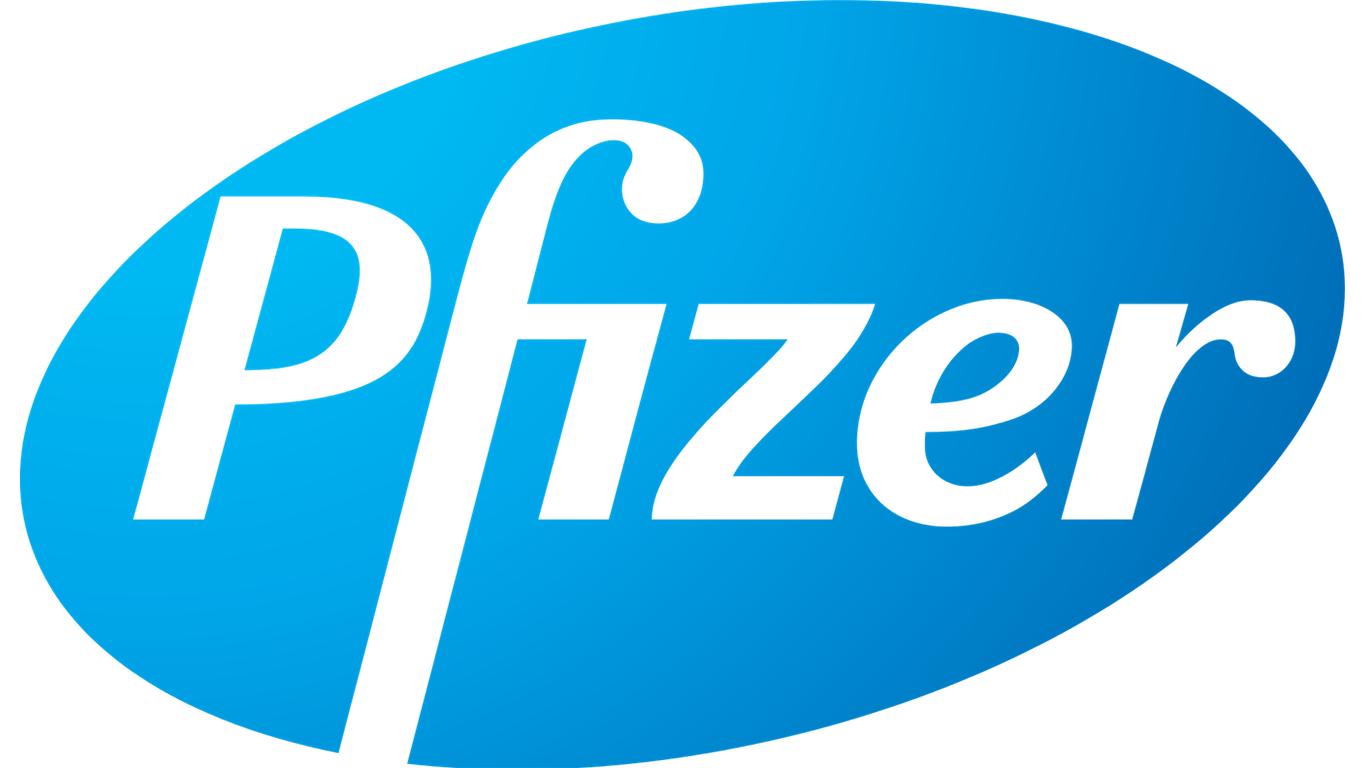
It takes a certain kind of courage to short sell blue chips, such as the Dow Jones industrial average components. Short sellers are betting on these companies to fail, or at least for their share prices to fall handily. Plus, those sellers are responsible for paying the dividends on the stocks they short.
Maybe it is little wonder that only three of the 30 Dow stocks had notable short interest between July 15 and July 31; that is, more than 50 million shares short. In fact, 10 of them had short interest of more than 25 million shares.
While the bull market is quite long in the tooth — now more than 10 years old — and concern about a possible recession remains as the trade war with China ramps up, the markets are still not that far from all-time highs. Investors may wonder then what the short sellers expect from some of the biggest, most well-respected names on Wall Street.
As of the July 31 settlement date, the most recently reported period, short sellers favored Pfizer Inc. (NYSE: PFE), Intel Corp. (NASDAQ: INTC) and Microsoft Corp. (NASDAQ: MSFT) above all other Dow stocks.
Pfizer
> Shares short: about 67.95 million
> Change from prior period: 17.7%
> Percentage of float: 1.2
Pfizer’s reign as king of the hill, which began in May, has resumed after just one period in the number two spot on this list. Note though that the latest figure is nowhere near the 156 million shares short seen back in January. The latest days to cover reading was almost three.
Pfizer announced in July that its Upjohn business would merge with Mylan to create a new global pharmaceutical company. Pfizer shares ended the short interest period about 9% lower than where they started, nearly all that drop coming in the final few days of the period. Meanwhile, the Dow retreated less than 2% between the settlement dates.
Shares closed most recently at $36.35 apiece, more than 3% lower for the week. Pfizer’s 52-week low of $35.86 was seen in that time, and the 52-week high of $46.47 was from this past December. The stock now is trading more than 16% lower than at the beginning of the year.
Intel
> Shares short: almost 63.37 million
> Change from prior period: 3.8%
> Percentage of float: 1.4
The number of shares short now has increased in four of the past six periods and is the highest it has been so far this year. The average daily trading volume increased in the latest period, and as of the end of last month, it would take nearly three days for investors to cover all their short positions.
Intel was reportedly in talks to sell its cellular modem business to Apple in late July. While the share price ended the short interest period 2% or so higher, it had been up more than 7% earlier in the month. The Nasdaq ended those two weeks essentially flat, though it pulled back afterward.
Intel was last seen trading at $45.98 a share, down handily from the multiyear high of $59.59 seen this spring. The 52-week low is $42.36 per share. Note that the latest share price is about 2% higher than at the beginning of the year, while the Nasdaq is up nearly 20% year to date and the Dow has seen a gain of more than 12%.
Microsoft
> Shares short: more than 53.07 million
> Change from prior period: 6.8%
> Percentage of float: 0.7
Microsoft’s short interest has grown for five consecutive periods, but the 52-week high was more than 58 million shares short posted in January. The average daily trading volume grew from its lowest level since April, but by the most recent settlement date, the number of days it would take for investors to cover all their short positions was still a bit more than two.
Microsoft posted better-than-expected fourth-quarter results during the period, in what it called a “record fiscal year.” Short sellers watched the share price seesaw through those two weeks and end down about 2%. The shares pulled back further afterward. The S&P 500 saw a fractional decline in the latter half of last month.
After rising more than 3% in the past week, Microsoft stock ended trading most recently at $137.71 a share. That was in a 52-week range of $93.96 (last December) to $141.68 (late July). The most recent share price is more than 35% higher than at the beginning of the year, compared to that gain of 12% or so for the Dow.
And the Rest
Rounding out the top five most shorted Dow stocks on the most recent settlement date were Cisco Systems Inc. (NASDAQ: CSCO) and Apple Inc. (NASDAQ: AAPL). Both of these stocks saw increases in the number of their shares short during the latter two weeks of July. Share prices of the former pulled back in that time, while the latter saw a modest gain. Cisco still faces potential headwinds, but a strong quarterly report helped lift the iPhone maker late in those two weeks.
Also notice on the following list short interest changes in Dow stocks as of July 31 the surges at Boeing (second-quarter net loss), Chevron (earnings expectations) and Coca-Cola (an all-time high):
| Dow Stock | Short (millions) | Change | % Float |
|---|---|---|---|
| Pfizer | 67.95 | 17.72% | 1.18% |
| Intel | 63.37 | 3.79% | 1.41% |
| Microsoft | 53.07 | 6.79% | 0.70% |
| Cisco | 43.10 | 8.00% | 0.98% |
| Apple | 43.01 | 1.36% | 0.91% |
| Exxon | 37.69 | 5.88% | 0.89% |
| Verizon | 33.27 | 5.95% | 0.81% |
| Coca-Cola | 32.34 | 14.19% | 0.76% |
| Visa | 28.32 | −4.50% | 1.62% |
| Walgreens | 25.97 | 4.14% | 3.27% |
| JPMorgan | 23.15 | 5.31% | 0.71% |
| Procter & Gamble | 20.80 | 9.76% | 0.83% |
| Chevron | 20.48 | 11.22% | 1.08% |
| Merck | 18.78 | −0.83% | 0.72% |
| IBM | 17.51 | 3.34% | 1.96% |
| Disney | 17.50 | 2.90% | 1.18% |
| Walmart | 16.84 | 0.03% | 1.18% |
| Johnson & Johnson | 15.81 | 7.42% | 0.59% |
| Home Depot | 10.28 | 1.07% | 0.91% |
| 3M | 9.47 | −15.18% | 1.65% |
| Nike | 7.70 | −10.28% | 0.62% |
| Caterpillar | 7.66 | 3.31% | 1.33% |
| Goldman Sachs | 7.62 | 2.54% | 2.22% |
| Dow | 7.26 | 8.46% | N/A |
| UnitedHealth | 7.11 | −0.63% | 0.75% |
| McDonald’s | 5.96 | −12.71% | 0.78% |
| American Express | 5.76 | 5.16% | 0.68% |
| United Technologies | 5.76 | 7.75% | 0.67% |
| Travelers | 5.57 | 3.10% | 2.12% |
| Boeing | 5.31 | 22.92% | 0.94% |
In 20 Years, I Haven’t Seen A Cash Back Card This Good
After two decades of reviewing financial products I haven’t seen anything like this. Credit card companies are at war, handing out free rewards and benefits to win the best customers.
A good cash back card can be worth thousands of dollars a year in free money, not to mention other perks like travel, insurance, and access to fancy lounges.
Our top pick today pays up to 5% cash back, a $200 bonus on top, and $0 annual fee. Click here to apply before they stop offering rewards this generous.
Flywheel Publishing has partnered with CardRatings for our coverage of credit card products. Flywheel Publishing and CardRatings may receive a commission from card issuers.
Thank you for reading! Have some feedback for us?
Contact the 24/7 Wall St. editorial team.

 24/7 Wall St.
24/7 Wall St. 24/7 Wall St.
24/7 Wall St.



